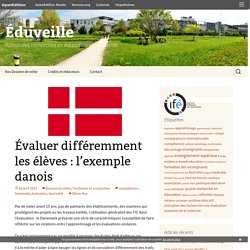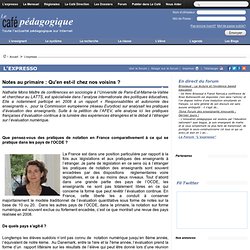

End the culture that encourages marking into the early hours. Workload, workload, workload....

This is the chat I hear from countless staff rooms up and down the country, be it the domination of planning, or the pointlessness of over-marking. In March 2016 the Report form the Marking Policy Review Group concluded that, 'If your current approach is unmanageable or disproportionate, stop it and adopt an approach that considers exactly what the marking needs to achieve for the pupils.' This comment is spot on. Why on earth are so many teachers marking for several hours night after night? Is it to improve the lot of the pupils in their care which is admirable, or is it a near-sighted school policy aimed at satisfying only the demands of the head, governors and parents? Marking needs to be revisited: it should be a valuable teaching tool that moves learning forward. Let's review a few basic issues. How have we got to a point where we literally mark everything a pupil does?
We therefore need to revisit why we mark. Meaningful Manageable Motivating. Évaluer différemment les élèves : l’exemple danois. Pas de notes avant 15 ans, pas de palmarès des établissements, des examens qui privilégient les projets ou les travaux inédits, l’utilisation généralisé des TIC dans l’évaluation : le Danemark présente une série de caractéristiques susceptible de faire réfléchir sur les relations entre l’apprentissage et les évaluations scolaires.

Ce n’est certainement pas un modèle à recopier (les écoles était d’ailleurs ces derniers jours bloquées par un conflit entre les enseignants et les municipalités) mais il a le mérite d’aider à faire bouger les lignes et de considérer différemment des traits de notre système considérés comme naturels voire inhérents à toute situation scolaire. En France, toute réforme des modalités du Bac semble porter atteinte à la civilisation (universelle, cela va de soi), dévaluer les diplômes ou menacer l’équilibre des savoirs. Une école qui n’était pas obsédée par l’évaluation Les résultats restent confidentiels. La notation : que font nos voisins ? Notes au primaire : Qu'en est-il chez nos voisins ?
Nathalie Mons Maître de conférences en sociologie à l’Université de Paris-Est-Marne-la-Vallée et chercheur au LATTS, est spécialisée dans l’analyse internationale des politiques éducatives, Elle a notamment participé en 2008 à un rapport « Responsabilités et autonomie des enseignants », pour la Commission européenne (réseau Eurydice) sur analysait les pratiques d’évaluation des enseignants.

Suite à la pétition de l’AFEV, elle analyse ici les pratiques françaises d’évaluation continue à la lumière des expériences étrangères et le débat à l’étranger sur l’évaluation numérique. Que pensez-vous des pratiques de notation en France comparativement à ce qui se pratique dans les pays de l’OCDE ? La France est dans une position particulière par rapport à la fois aux législations et aux pratiques des enseignants à l’étranger.
De quels pays s’agit-il ? Longtemps les élèves suédois n’ont pas connu de notation numérique jusqu’en 8ème année, l’équivalent de notre 4ème. Oui et non. Nathalie Mons. Évaluer différemment les élèves : l’exemple danois. China's Education Proposal Could Mean Less Homework For Students. For young students in China, school may soon be a lot less stressful.

According to state television network CCTV, the country’s Ministry of Education recently released a proposal to lighten the workload of Chinese students. The suggested regulations were open for public comment in late August and will be amended based on that feedback. If enacted, the regulations would signify major changes for Chinese schools. According to the proposal, primary school children would not be allowed to write homework and would only be assigned "experiential homework" involving field trips, crafts, or other hands-on activities. Additionally, schools would have to reduce testing for their youngest students. According to education scholar Dr. The new reforms will likely be enacted in the near future, with China Daily noting that "it seems beyond doubt that the new rules will come into effect soon. " In a CCTV video, parents generally reacted positively to the proposed rules.
Earlier on HuffPost: